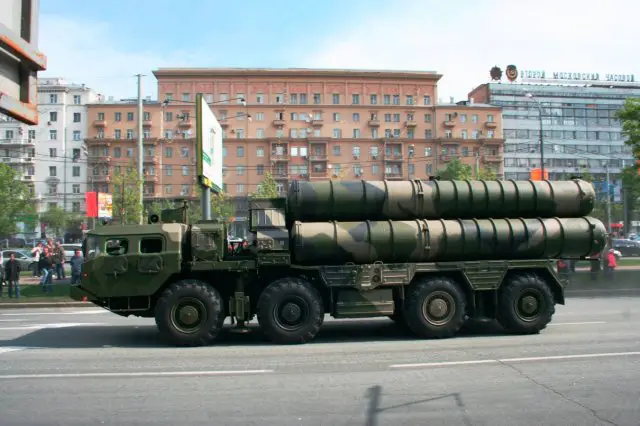Breaking news
Russia, Iran to devise arms trade plan in four years 51801172.
| 2017
|
|
|||
|
Defence & Security News - Iran, Russia
|
|||
|
|
|||
| Russia, Iran to devise arms trade plan in four years | |||
|
A plan of the military-technical cooperation between Russia and Iran will have been drawn up in four years, Vladimir Sazhin, senior researcher with the Center for Middle East Studies of the Institute of Oriental Studies of the Russian Academy of Sciences, opined at a roundtable discussion titled Iran - a Year after Lifting Its Nuclear Program Sanctions.
|
|||
|
|
|||
 The Russian-made S-300 (NATO reporting name: SA-10 Grumble) air defense missile systems has been delivered to Iran in 2016 The Russian-made S-300 (NATO reporting name: SA-10 Grumble) air defense missile systems has been delivered to Iran in 2016 |
|||
|
|
|||
|
"A good groundwork is being laid for the future," the expert said.
Sazhin reminded that under the Iran Joint Comprehensive Plan of Action (JCPOA), which came into effect on January 16, 2016, sales of heavy offensive weapons to Iran are banned for five years while those of missile technologies and missiles for eight years. "Four years are left [until the lifting of the embargo on selling heavy offensive weapons to Iran]. I guess an arms trade plan will have been devised by then," the expert said. According to him, 2016 was "extremely lucky" to Iran. "The inflation rate at the end of the year stood at 7.5%. It was over 40% in 2012 and 2013. Iran’s GDP had grown by 7.4% from March to September 2016," Sazhin said, noting that "it is the fastest growth of the country’s development over the past 20 years", according to Iranian economists. At the same time, military expert Vladimir Yevseyev, deputy director of the Institute of CIS Countries, opined that 2016 was "a year of hopes that did not come true’ to Iran. "There are many problems hampering [Iran’s] economic plans. In particular, the banking system does not function well, and the domestic legislation process does not work," he reminded, "though many countries regard Iran as a solid partner." Russia’s delivery of the S-300 (NATO reporting name: SA-10 Grumble) air defense missile systems did not resolve Iran’s problems, Yevseyev noted. "The first thing Iran should do is to rebuild its defense capabilities," he believes, "including its air force and navy." "Russia can help, inter alia, in building airfields and training pilots," he said. This would facilitate the bilateral military strategic partnership." "Iran should choose right partners," the expert emphasized. |
|||
|
|
|||
|
© Copyright 2017 TASS. All rights reserved. This material may not be published, broadcast, rewritten or redistributed.
|
|||


























